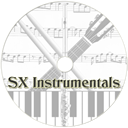Description | The DMX is a programmable digital drum machine manufactured by Oberheim Electronics. It was introduced in 1981 at a list price of US$2895, and remained in the company's product line until the mid-1980s.
The Oberheim DMX was the second digital drum machine ever to be sold as a commercial product, following the Linn LM-1 Drum Computer in 1980. Its popularity among musicians of the era contributed to the sound and evolution of 1980s new wave, synthpop and hip hop music.
The Oberheim DMX programmable Digital Drum Machine represents a new concept in electronic sound. The DMX has been designed by the Oberheim staff with the idea of giving you better sound, and more intimate control of it, than has been previously available in a percussion synthesizer.
The DMX generates the sounds of real drums. Recordings of real drums are digitized, stored in computer memory, and are made available at the touch of a button. A drumbeat may be recorded in real-time at any speed, remembered, and edited to make any beat of any length, tempo, or style—in short, any drum beat that you hear in your head, you can create on the DMX. After you have created your drumbeats, you can save them on tape for future use. The DMX even has a battery to keep the memory on when the power is off.
The DMX operates like a tape recorder: press RECORD and Record your rhythms; then press PLAY and hear it back. But there's more to it than that. There are many more features that are incorporated into the DMX to actually give you much more control over your music than a tape recorder gives you.
The machine has a number of human like feels to it such as a great swing function, rolls, flams and other weird time signatures and grooves. Best of all it's easy to operate. 8 separate outputs for individual processing, 100 sequences and 50 songs.
|





